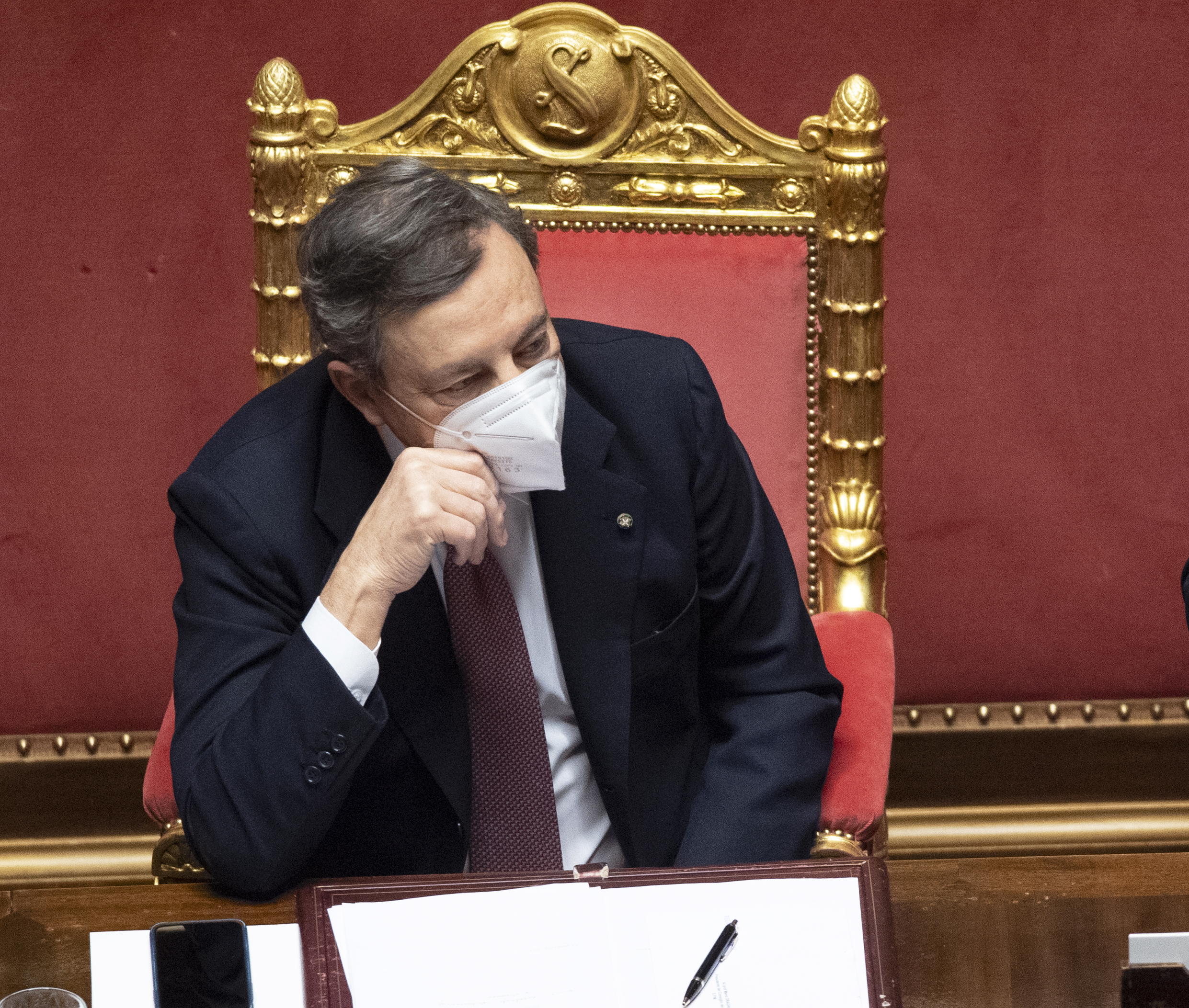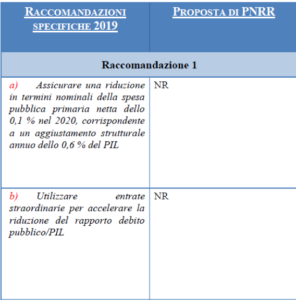Because Conte’s PNRR is weak according to Draghi and the EU Commission

What Draghi said in Parliament about the Conte government's PNRR and what is missing in the draft of the National Plan for Recovery and Resilience according to a report by the Senate Studies Service
After the broad confidence obtained this week by the government of President Mario Draghi, now is the time to get our hands on the most important dossiers, among which the National Plan for Recovery and Resilience (Pnrr) stands out . Without its approval by the EU Council, after a positive assessment by the Commission, not a single cent of the much-needed 210 billion in loans and subsidies promised for almost a year will arrive.
During the keynote speech Draghi devoted ample space to describe what is there and, above all, what is not in the Plan presented to the Chambers on January 12 by the Conte 2 government. But he failed to answer the most disturbing questions, instead posed by an effective dossier by the Senate Studies Service .
He began by saying that “… The previous government has already done a great deal of work on the Recovery and Resilience Program (PNRR). We need to deepen and complete that work which, including the necessary discussions with the European Commission, would have a very short deadline, the end of April… ”.
I would say that underlined verbs leave no room for doubt. Together with the "necessary interlocutors" with the Commission which is the real dominus of the whole project.
He went on to throw the ball to Parliament, stating that “… the orientations that Parliament will express in the coming days to comment on the draft Program presented by the outgoing Government will be of fundamental importance in the preparation of its final version. The Missions of the Program may be remodeled and re-merged, but those set out in the previous documents of the outgoing Government will remain … "
But the new government has "guidelines":
1) "… We will have to strengthen the Program first of all as regards the strategic objectives and the reforms that accompany them …"
2) "… we will strengthen the strategic dimension of the Program, in particular with regard to the objectives concerning the production of energy from renewable sources, air and water pollution, the fast rail network, the energy distribution networks for electric propulsion vehicles, hydrogen production and distribution, digitalization, broadband and 5G communication networks … "
3) "… The role of the State and the scope of its interventions must be carefully evaluated …"
4) “… It will not be enough to list projects that are to be completed in the coming years. We will have to say where we want to go in 2026 and what we aim for in 2030 and 2050 … "
5) "… We will select projects and initiatives consistent with the strategic objectives of the Program"
6) "… We will clarify the role of the third sector and the contribution of private individuals …"
7) "… We will emphasize the role of the school …"
8) “… The governance of the Recovery and Resilience Program is based on the Ministry of Economy and Finance…”.
In this too it seems useless to emphasize the meaning of the verbs highlighted in the text. They are the synthesis of what is missing from that plan. And it's not cheap. But it is to the much-needed reforms that Draghi has dedicated a special paragraph (also a sign of the modest work done so far):
a) “… Some concern problems that have been open for decades but which must not be forgotten for this. These include the certainty of public investment regulations and plans, factors that limit investments, both Italian and foreign. besides the competition …
b) “… In recent years our attempts to reform the country have not been entirely absent, but their concrete effects have been limited. Perhaps the problem lies in the way in which we have often designed the reforms: with partial interventions dictated by the urgency of the moment, without a comprehensive vision that requires time and expertise … "
Taxation, public administration and justice are the fields of activity that Draghi aims at.
On justice it aims "… to increase the efficiency of the civil judicial system, implementing and promoting the application of the reform decrees on insolvency, ensuring a more efficient functioning of the courts, favoring the disposal of the backlog and a better management of burdens of work, adopting simpler procedural rules, filling vacant posts for administrative staff, reducing the differences that exist in the management of cases from court to court and finally promoting the repression of corruption… ”.
Vaste program, General Charles De Gaulle would have said. Here we only allow ourselves to observe that "efficient" civil justice – on the eve of a wave of insolvencies that will make the already impressive one following the crisis of 2011/2012 pale – we would not want it to be the right tool to allow expropriation, to vile price, companies brought to their knees by a crisis for which they have no fault and which have been "helped" by the state only by allowing them to make more debts. There are worrying signs coming from this direction.
But Draghi failed to respond to some fundamental points posed by the country recommendations for Italy issued by the Commission, which he also cited. Points a) and b) of the Senate document, reported here, are absent.

Just as there is no trace of point c) on land registry reform and reduction of tax breaks and point e) highlighted in the Senate dossier.

Is Draghi going to cut public spending or "use extraordinary income" to lower debt / GDP? It is not known. But the Commission cares instead.
"… The Plan does not mention interventions for the reduction of tax breaks and for the updating of cadastral values …", observed the officials of the Senate. And it seems that the same remark can also be formulated with regard to the guidelines of the Draghi government.
There is also nothing about the reduction of pensions, another point highlighted as absent in the PNRR, in the analysis of the dossier. Speaking of taxation, Draghi spoke of a gradual reduction in the tax burden as one of the objectives of the IRPEF reform.
We can only send him our best wishes for the outcome of the negotiations with the Commission for the approval of the PNRR.
This is a machine translation from Italian language of a post published on Start Magazine at the URL https://www.startmag.it/economia/perche-il-pnrr-di-conte-e-fiacco-secondo-draghi-e-commissione-ue/ on Sat, 20 Feb 2021 19:36:09 +0000.
